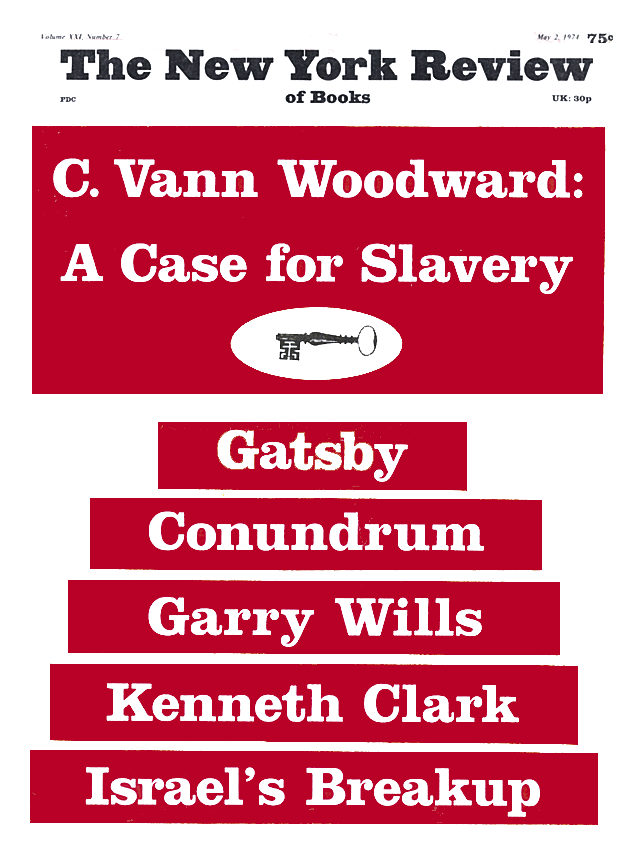In response to:
America's Catholics from the March 7, 1974 issue
To the Editors:
Now that he is in his decline, I wish Wilfrid Sheed would stop berating the rest of us for his own failures in autobiography [NYR, March 7]. Since this is the second time he has reviewed my book, I also wish he could get straight “the force of a single fact”: my family background is not Polish but Slovak.
Sheed’s essay falls in an unthinking tradition of intra-Catholic bigotry. The culture of other immigrants has long (and needlessly) been an embarrassment to Anglo-Catholics, particularly to those who despite their commercial background nourished pretensions of aristocracy. When Sheed says “we,” it is this English Catholic class and its cultural symbols he has at heart—steeped in Chesterton, Belloc, Waugh. “Catholics of this persuasion,” Sheed writes, “agonized more over their own bourgeoisification than over any outside danger.” Exactly.
Sheed’s comprehension of the experience of Americanization is narrow. His guesses about my own life are gratuitous as well as wrong.
Johnstown is not alone the place where I grew up, but also Indiana (Pennsylvania) and McKeesport—that was a great, wide world to me then; it is a region of unutterable beauty and poignancy: No need to “escape” it. The people of Johnstown are invariably more civil and courteous than New Yorkers; they have a natural modesty New Yorkers cannot approach; and I never met anyone there as bigoted, blind, or snobbish as Wilfrid Sheed.
When I entered the seminary—not from Johnstown but from McKeesport—the world as I knew it seemed splendid. Whatever I tried succeeded; honors came to me.
The region is the Slavic quarterback capital of the world; Lujack, Unitas, Namath, and Blanda all grew up there. I was big for my age, a good athlete, and in love with sports. Coach “Duke” Weigel’s McKeesport “Tigers” were in those years the best high school team in the Northeast and Duke made a point of coming to our eighth-grade games, and calling me aside about “next year.”
Entering the seminary meant, indeed, renouncing “the world,” a good world. It also meant entering an almost wall-to-wall Irish sensibility. To survive, I in jest altered my name to “O’Novak,” wore green on March 17, and answered “No” to the incessant question, “Wouldn’t you rather be Irish?” It meant dealing with people a lot like Sheed.
The situation of those Catholics who are not English or Irish has always been marginal both in America and in the American church. But out of that marginality comes an originality of vision that has only begun to be expressed in works of scholarship and art. Our history in America has scarcely been told. We are not what others think us. I, for one, am weary of complacent ignorance.
Michael Novak
Bayville, New York
Wilfrid Sheed replies:
Joe Namath is a Hungarian.
This Issue
May 2, 1974


